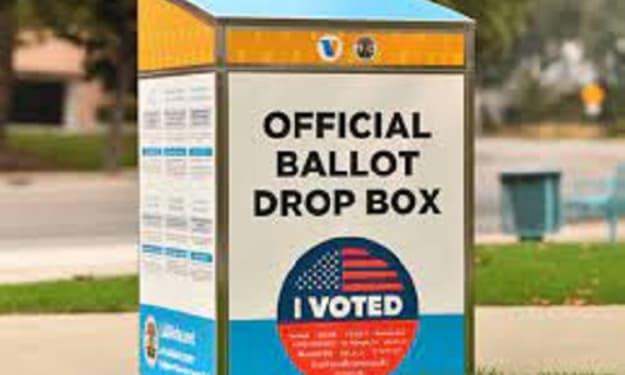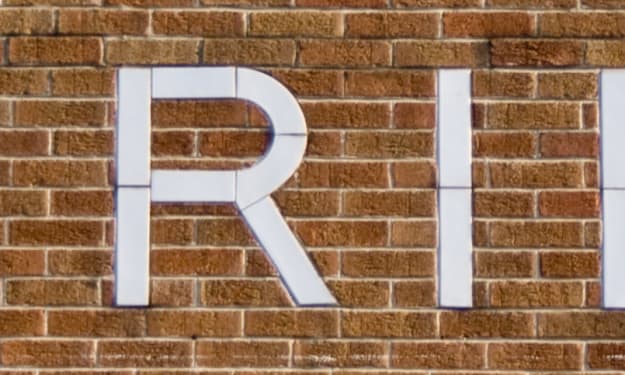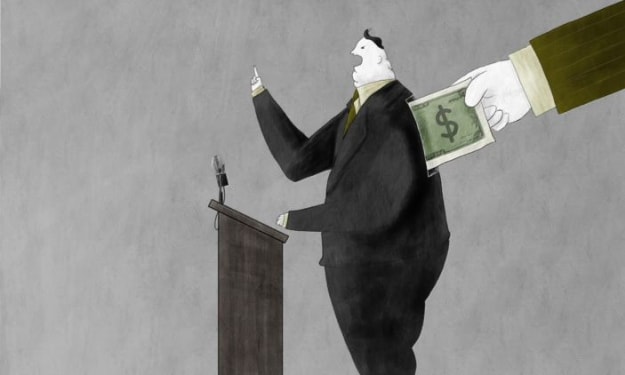The Greatest Threat To The Republic
It Might Not Be What You Think

Modern American partisan politics is one of the greatest threats to our Republic.
George Washington wanted no part of political parties, because he knew that at some point a partisan identity could become more important to a citizen than their national identity. His prediction has come true in our time.
Political parties have value in a democracy, especially one with a population and landscape as diverse as ours. They can establish principles and priorities of governing and organize their members to agree on them. They provide a much-needed balance to the opposing party, so that the dictatorship of single party rule never becomes reality.
These powers, like the powers of government and the riches of the nation’s treasury, have been taken over by people whose only goals are power and money. Hyperpartisanship has made winning elections and governing much easier for those who are best at manipulating partisan sentiment and party infrastructure.
The Democratic nominee for President automatically and traditionally gets assets handed to him by the party: unions, environmentalists, minorities, the college-educated, the states of New York, California, Illinois, Massachusetts and Connecticut, as well as the forty percent of the electorate who reliably vote Democrat. The same way the Queen of England gets the keys to Buckingham Palace at her coronation, the Democratic nominee can safely put these blocks of support in the win column before any vote is cast. If elected, they can count on, at least on day one, the support of every Democratic member of Congress.
The Republican nominee for President gets evangelical voters, abortion opponents, the chamber of commerce, the states of Texas, Alabama, Mississippi, Oklahoma, Utah, Kansas, Nebraska, South Carolina, and Wyoming, as well as the forty percent of the electorate who reliably vote Republican. The same way the Pope gets to live at the Vatican once the white smoke rises in the sky, the Republican nominee has these groups and votes in his pocket long before Election Day. And if he wins the White House, every Republican member of Congress.
This is a lot to take for granted.
The list that I mentioned above—the base of the party faithful—has grown tremendously in the last few decades. Along with the influence of money in campaigns, this factor is primarily responsible for disenfranchising most of our citizens, and making government more about the party than the good of the people, or the wishes of constituencies.
The Republican nominee for President, and the party machine behind him, isn’t campaigning in Mississippi, because he already has it in his pocket. Nor is he campaigning in New York, because he’ll never get it. The Republicans care about Ohio and Florida, because they need them to win.
The Democratic nominee for President, and the party machine behind him, isn’t campaigning in Massachusetts, because he already has it in his pocket. Nor is he campaigning in Texas, because he’ll never get it. The Democrats care about Ohio and Florida, because they need them to win.
Governing isn’t much different. Politicians always know what support they have and what they don’t. Speaking to and governing to the base is simple—the base will never leave, so they are easy to take care of. The President doesn’t play golf with the Senator who always votes with him when crucial votes are on the line—he’s courting the undecideds. As election season heats up, the parties spend most of their time and money and power in the places they are weak, in the battleground states and with the groups of citizens who haven’t decided whose side they’re on. But these up-for-grabs regions and groups are getting smaller with each passing day.
What’s left to win (and care about) is an ever-decreasing part of the population. It can be said that campaigning and governing only gives real representation to the ten to twenty percent of the electorate that hasn’t made up its mind. If you are a Democrat in Mississippi, neither the Republicans nor the Democrats care what you think. If you are a Republican in Massachusetts, neither the Democrats nor the Republicans care what you think. Both when running for office and being in office. Your importance or irrelevance was decided long ago. Your voice in our democracy was silenced before you got to use it.
All this was ours to give away, and we did it willingly. Americans are tremendously loyal and supportive—it has always been one of our greatest strengths. But in these late days of toxic and opportunistic party politics, the early promise of your vote to a party or a candidate deprives you of the only power you have left in our republic. Members of Congress aren’t swayed by your phone calls or letters anymore—they care about polls, and the electoral map, and what their donors and party leaders want.
Election Day is your one shot at a wakeup call.
Your vote is the most precious thing you have in our political system. Giving it away for the sake of party or single-issue allegiance is a waste. The parties and our elected officials would campaign and govern very differently if they knew that no vote, no group, no state, no district was safely theirs. Every state should be a battleground. Every voter, every constituent, and every citizen should matter.
The only way to make politicians hold to the promises of their oaths of office and the interests of the nation is to give them nothing they don’t earn.
Make them work for it, and they will work for us.
About the Creator
Stacey Roberts
Stacey Roberts is an author and history nerd who delights in the stories we never learned about in school. He is the author of the Trailer Trash With a Girl's Name series of books and the creator of the History's Trainwrecks podcast.
Enjoyed the story? Support the Creator.
Subscribe for free to receive all their stories in your feed. You could also pledge your support or give them a one-off tip, letting them know you appreciate their work.






Comments
There are no comments for this story
Be the first to respond and start the conversation.